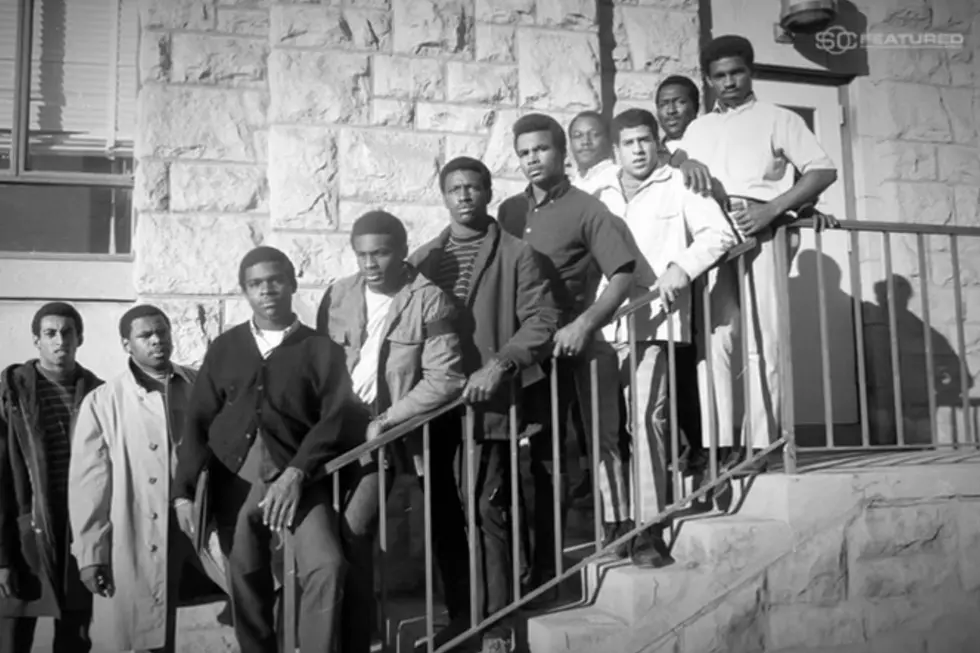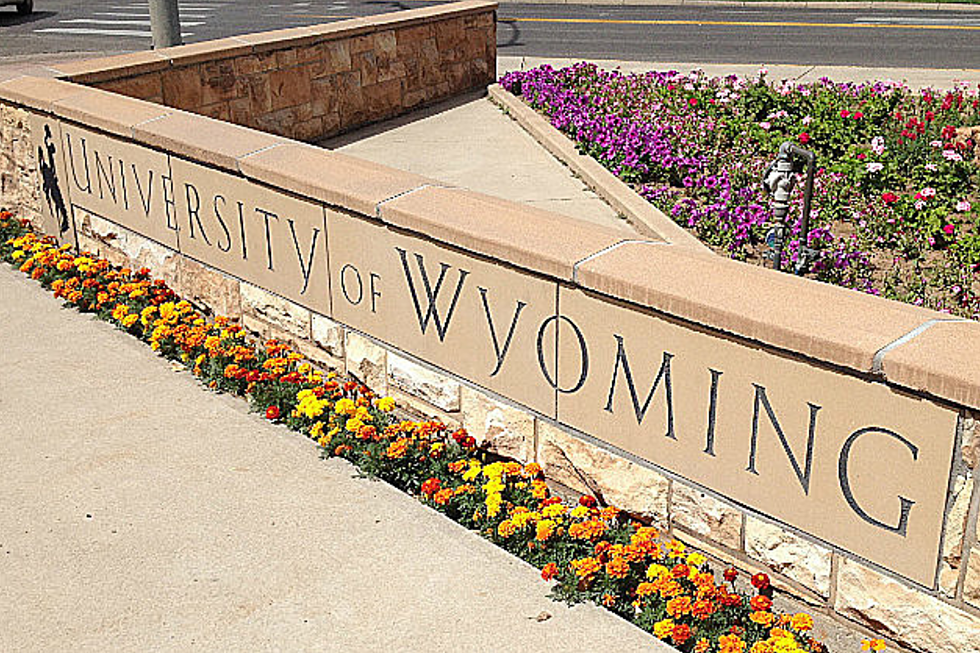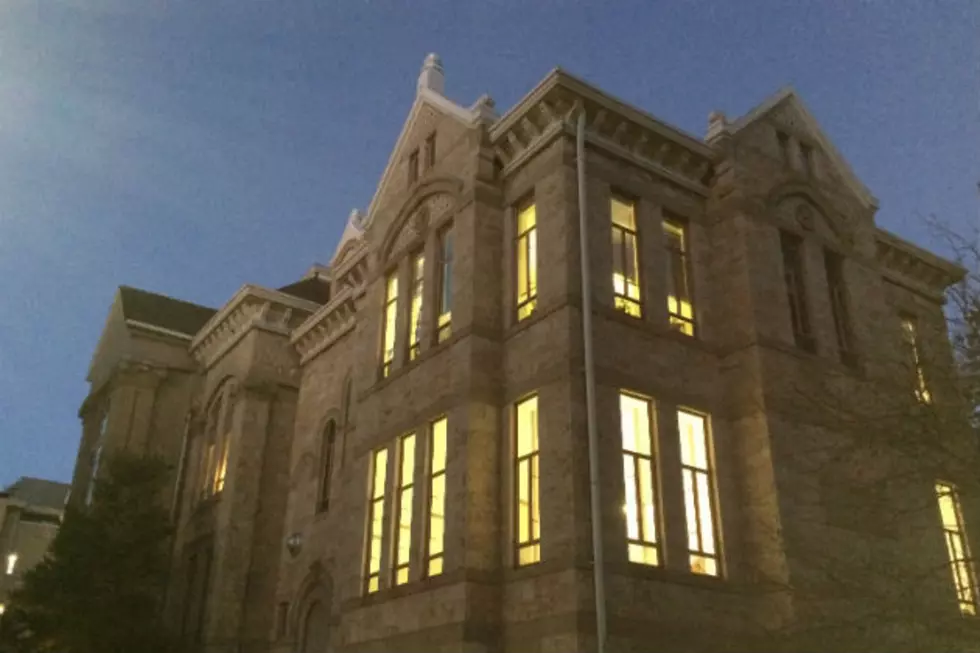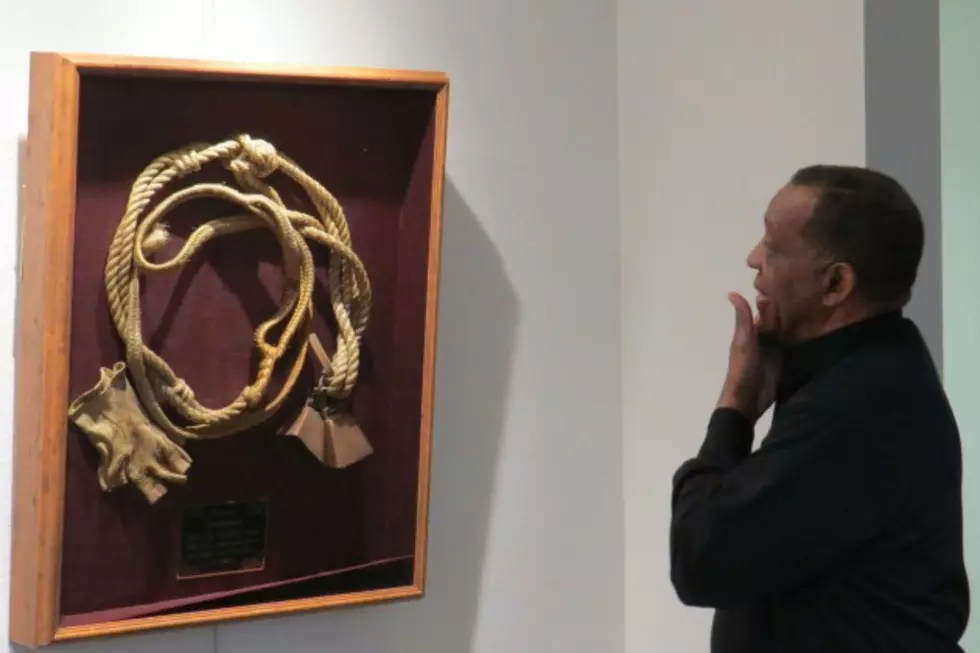
Wyoming Black 14 Members Receive Award From University
LARAMIE, Wyo. (AP) — Seven of 14 black players summarily dismissed from the Wyoming football team nearly 50 years ago returned to the university Friday to dispel myths about their experience and show other black athletes that they can successfully overcome major obstacles.
One of the myths that the players, who are known collectively as the "Black 14," wanted to dispel was that they had walked out on the team and refused to play back in the fall of 1969 when they were kicked off the team by coach Lloyd Eaton for wanting to wear black armbands in a game against Brigham Young over the treatment of black players by that team during games and the discriminatory policies of the Church of Jesus Christ of Latter-day Saints back then.
"We wanted to wear the armbands as a display of protest that, 'Hey, believe what you want but don't bring it on the gridiron,'" Guillermo Hysaw said.
The truth, they said, was Eaton had gathered them together and dismissed them en masse before the players could even ask permission to wear the armbands.
Wyoming, which had lost only one game the previous year to LSU in the Sugar Bowl, was undefeated at the time in the 1969 season, but eventually lost four games after the episode. Wyoming won only one game the following season, and Eaton was forced out with the school's reputation being scarred for years afterward.
The seven returned for Wyoming's Black History Month and Martin Luther King Jr. Days of Dialogue events this week.
Before this week, the seven players had never appeared together on the Wyoming campus since 1969.
Among them was Tony McGee, who played for the Washington Redskins when they won the Super Bowl in 1983.
McGee said the players want to show others that they persevered in life despite the traumatic event that left them labeled as "rabble-rousers and troublemakers" and cost some of them possible careers in the NFL.
Hysaw said his biggest disappointment was that Eaton died before he could ask him why he acted as he did with the players.
"I really wish, more than anything else, more than going to the NFL, is having that conversation with him, and not a monologue but a dialogue," he said.
More From K2 Radio





![Casper’s First Female Police Officer: Alona Boggess [PHOTOS]](http://townsquare.media/site/147/files/2017/02/Alona-Boggess-Collage.jpg?w=980&q=75)

![NHTIC With A Buffalo Soldiers Exhibit Thru The End Of The Month [AUDIO]](http://townsquare.media/site/101/files/2011/02/buffalo-soldiers.jpg?w=980&q=75)
![Trails Center to Showcase Buffalo Soldiers Exhibit [AUDIO]](http://townsquare.media/site/101/files/2011/01/buffalo-soldiers.jpg?w=980&q=75)
